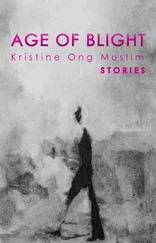“I think it might be a house burning,” she said as if it were a normal thing.
The flames increased and she was right. We heard several shots even though we were far away. The sounds of the shots traveled across the water and came to us as if the shooters were a hundred feet from us. Both of us flinched, knowing people were shooting at each other.
Sue covered herself with another blanket and snuggled closer. I placed an arm around her and said, “I’ll help with the glass and together we’ll get to know the boat and how to sail it, but I guess teaching you to ride a motorcycle isn’t going to happen.”
“I don’t know anything about boats.”
It sounded as if she didn’t intend learning. “What happens if I’m hurt or sick? It will be up to you.”
She pouted and refused to answer any more on the subject.
Our halting conversation continued deep into the night. Sue had been raised with strict gender roles and beliefs. At first, she resisted what I was suggesting about her learning to steer the boat. After discussing it for a few hours she relented, if for no other reason than to get me to shut up so she could sleep.
I insisted on sleeping outside, with the mental reservation that if it rained, I’d go inside. I awoke several times, nervous and uneasy with the bobbing of the boat, when a larger wave pushed us aside, or when we heard gunfire. After a quick search all around, I went back to sleep each time. Sue was on the cushion next to me, wrapped head to foot in a couple of blankets.
My sensible thinking was about all the things we needed to do the following day, and the day after that. Hundreds of things. If we accomplished half, we’d be doing well. I was planning again. It seemed a curse.
But my social awkwardness and general ineptitude when around people was what kept me awake. Not that I didn’t like people but admitted to myself that I didn’t care for most of them. They were usually self-centered egotists. They had little time for people like me, and many had been deliberately unkind. The groups at school were a good example. There was no group or clique I ever fit in comfortably.
They had time for people like themselves, but not for me. So, what did that mean? I’d long ago decided it meant there was something wrong with me, not them. Perhaps I expected too much. Maybe not enough. All of which brought me back to Sue. She seemed to like me for who I was, although sometimes she had to lead me around by my nose. I certainly liked her. Hopefully, she reciprocated the feelings.
My troubled mind centered on the immediate future. She would eventually find someone she liked better. Then she would leave me. I hated that idea. Living without her had become unthinkable.
The thing to do was for me to change, not attempt to change her. I needed to be more caring, and maybe less of some other things. That might work if I knew what those things were and how to resolve them. I’d spent my entire life trying to figure out those shortcomings and failures. The idea I could do it now was silly. I am who I am.
The dawn broke softly, if that is possible. Out on the water, with the engine turned off, it seemed totally feasible. The lapping of the waves against the hull, the gentle breeze causing ripples on the water. As the boat rocked back and forth, a metal snap on the end of a rope tapped against the metal mast. Seagulls circled and squawked, demanding a handout.
Instead of rising immediately, as was normal for me, I remained still, enjoying the pleasant morning sounds. An increasingly loud buzz made itself known. My dull mind finally recognized it as a motor.
A boat motor. I leaped to my feet and spotted a boat in the distance, white water spraying to each side like the mustache on an old man, as it headed directly for us.
“Sue!”
I located the rifle just inside the doorway to the cabin. With the rocking of the boat, it took a while to find and focus the scope on the approaching boat. It was the kind with the open bow that I associated with water skiing. Three men were in it, one waving what looked like a whiskey bottle as he shouted gleefully.
Sue pursed her lips but said nothing. She watched the antics on the boat with a slight curl of disapproval on her lip.
Another man held a pistol that looked like a six-shooter from cowboy days. Over the whine of the engine, I heard their screams and shouts as they came closer. I lowered the rifle. Pulled my pistol, then fired a single shot into the air. That was my only warning. I wouldn’t waste more ammunition on warnings.
The boat turned aside and slowed as I watched through the rifle scope again. The men were arguing. One kept pointing at us. If they came closer, he’d be my first target. Eventually, they turned away. Maybe they had thought the boat abandoned. A natural mistake.
Peering around, I immediately noticed two more things: we had drifted very close to the mainland during the night, and Sue was at my side, her shotgun held in front of her ready to defend our boat. I gave her a curt nod and handed her my rifle. She carried both inside.
The drift concerned me. We’d floated most of the way back to Everett and could have washed up on rocks and the boat sank because I didn’t know how to operate the anchor. That pointed the way to a hundred other critical things I needed to know.
“Bill, you need to come in here,” Sue called from the cabin.
I took a quick check around to make sure we were alone, started the engine and put it in forward, at a slow speed. A loop of nylon rope kept the wheel in one location. I went down the five steps into a cabin worthy of a five-star hotel.
The floors were bare wood, the cabinets nicer than those in my home, the table was surrounded by a padded seat that would sit six. To my left was the little desk with the electronics mounted on the wall or on small shelves. Sue stood beside a stove; a coffee pot held high. “Look at this. We fell into a bowl of chocolate.”
She opened cupboard doors. Behind them were cans of beans, dehydrated meals-packs, sealed containers of nuts, and food of all sorts that could last for months or years. She opened a refrigerator door, and although it only held a few condiments, it was obviously cold—and working. Sue turned to the sink and filled the coffee pot from the tap. There was tap-water! She had a can of ground coffee at her elbow.
There were four doors. Two on one side, one on the other, and at the front of the cabin was an open one. Inside it was a bed made to fit the outline of the V-shape of the front of the boat. Only the broken window ruined what was otherwise a perfect place to live. I stood flatfooted, as amazed as her. We had indeed fallen into a bowl of chocolate.
She said with a wave of her arm at a closed door, “There’s clothes, jackets, and other things like that in there. I don’t know what all else besides a bed and a built-in dresser. The second door is a bathroom, shower and all.” Her arm moved to indicate the last door. “That one was another bedroom, I think. Now it’s got shelves piled full of other stuff. Someone made it into a storeroom with repair things for the boat.”
We needed to inventory what was on the boat. I went back to the wheel and increased the speed of the engine. The boat moved ahead—slowly. I glanced at the fuel meter and found the needle had already moved a tiny bit. Pushing a boat the size of the one we’d stolen required power, which equated to more fuel consumption.
The boat had reached the southern tip of Whidbey Island, which was not that far because my imagination told me I could still see the yacht harbor in Everett behind us. I cut the engine and took a long, good look around. Whidbey Island was located in the middle of Puget Sound, averaging in size maybe five miles wide and fifty miles north to south, if I remembered the map we’d studied correctly.
Читать дальше












